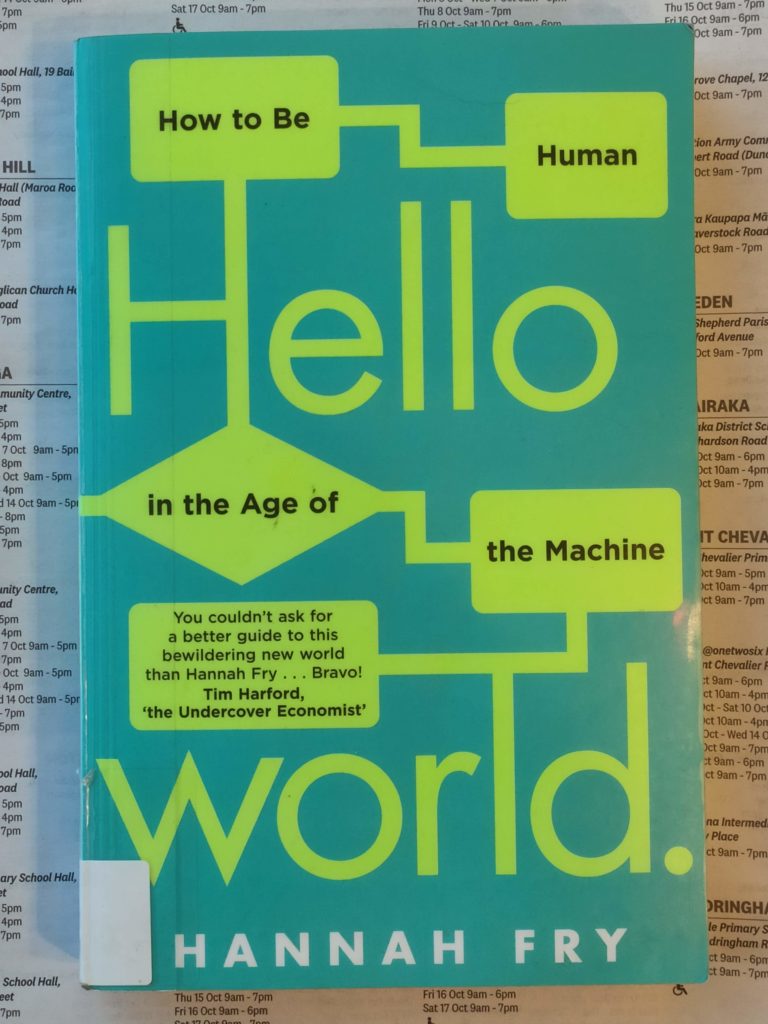
“Algorithms” will save the world, or possibly destroy it. This book is a good survey of how computerised algorithms are used and misused, and how they can be harnessed so their power can be used for good rather than evil.
Continue reading
“Algorithms” will save the world, or possibly destroy it. This book is a good survey of how computerised algorithms are used and misused, and how they can be harnessed so their power can be used for good rather than evil.
Continue reading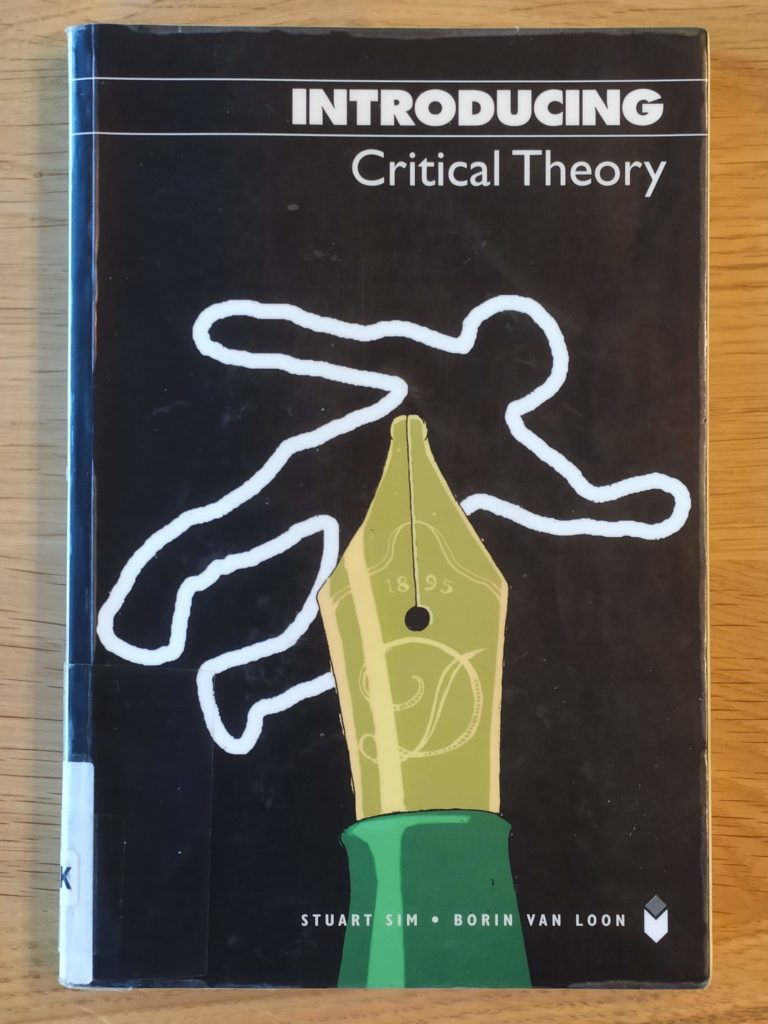
This is a dizzying whirlwind tour of Marxism, feminism, postmodernism, and so many other isms, theorists, philosophers and various thinkers. It can’t do much more than give the briefest summaries of these ideas, but it does help to see how they fit together historically. Sadly there is nothing on critical race theory, which seems to have become a thing recently. Still there is a lot to chew on and a lot of launching points for further reading, if only I had a spare decade or so.

This is an enlightening discussion of what identity is and how it works, both in history and in the present day. Appiah weaves explanations together with history, anecdotes and analysis. He also adds some personal stories and perspectives from his own quite interesting background.
Continue reading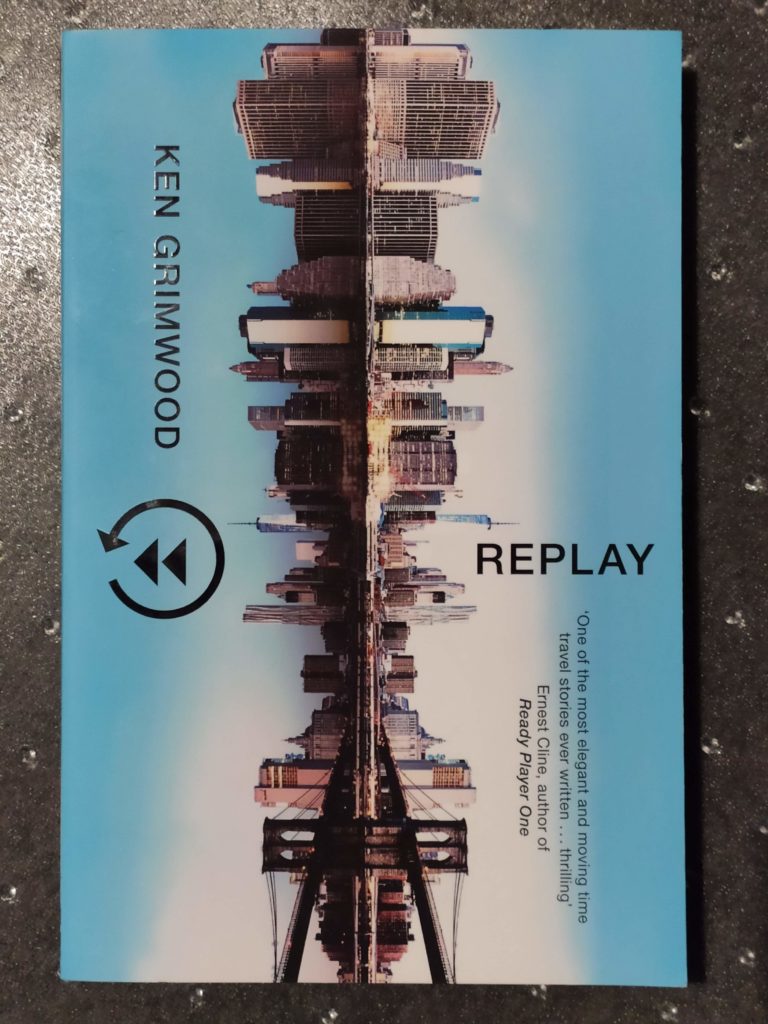
I do love a good time-travel story. A middle-aged man has a heart attack and dies – and then wakes up again as a young man back in his college days. Once he figures out what has happened, he sets about figuring out how to deal with it. He’s got an amazing opportunity to replay his life, fixing all the mistakes and maybe becoming rich too. (If it happened to me I would definitely be buying quite a lot of Bitcoin.)
Continue reading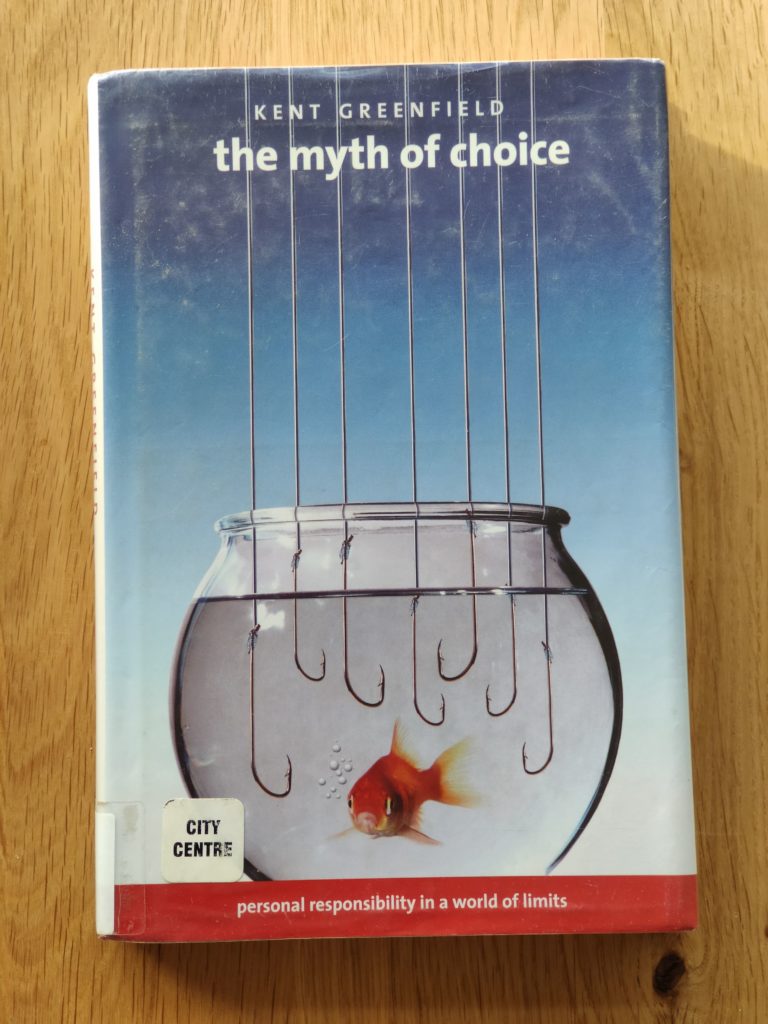
When you need to make a decision, having more choices isn’t necessarily better: what really matters is ending up with a good result. Greenfield cites an old Burger King advert: “Choices don’t mean a thing when there’s nothing good to choose.”
Continue reading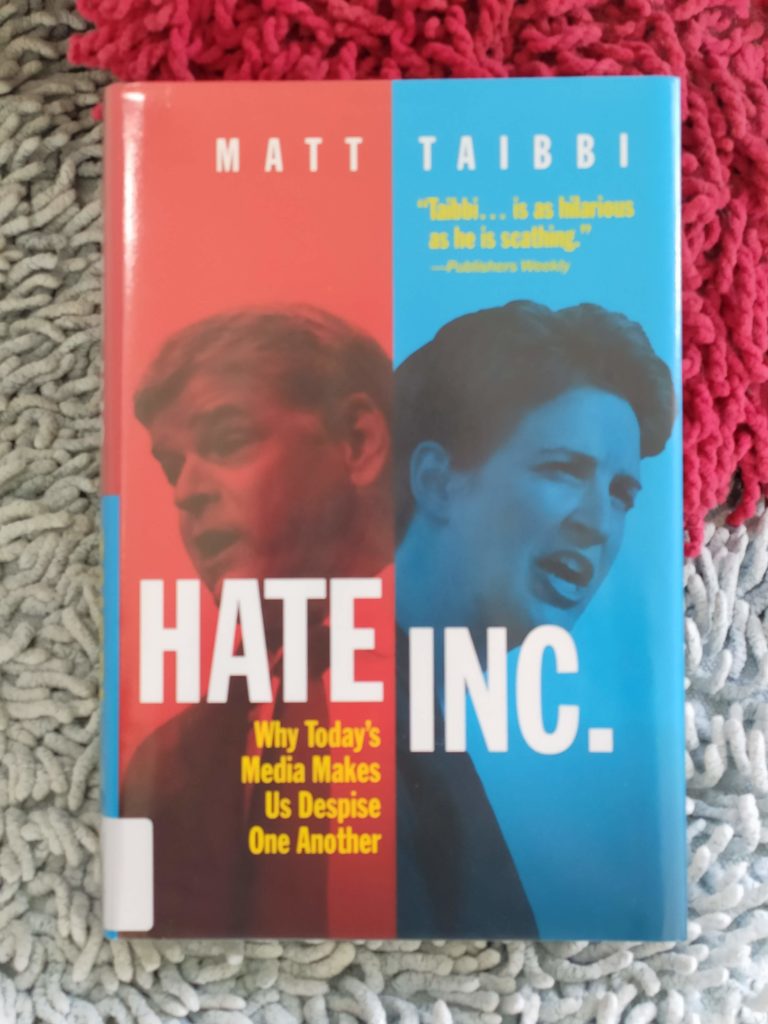
The news is a consumer product.
That’s the one thing that Matt Taibbi wants us to learn from this book. He lays out in great detail why the media has become such a monster: conflict is good for ratings, so it’s in the interests of TV shows, websites and newspapers to emphasise conflict, and manufacture it if necessary.
Continue reading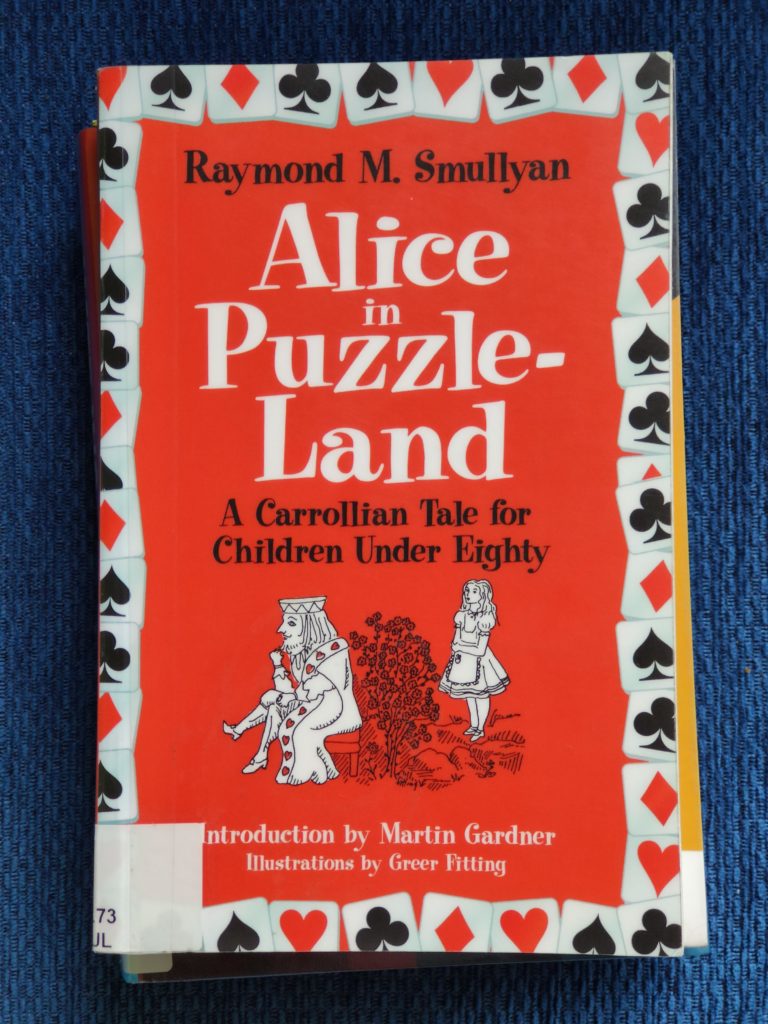
This Alice In Wonderland-inspired puzzle book is a fun setting for lots of logic puzzles. They are mostly the “Liar and Truther” type, like this one:
Continue reading
This random grab bag of philosophical ideas covers religion, ethics, metaphysics, logic and quite a lot more. It’s not really cohesive but it is interesting all the way through.
Continue reading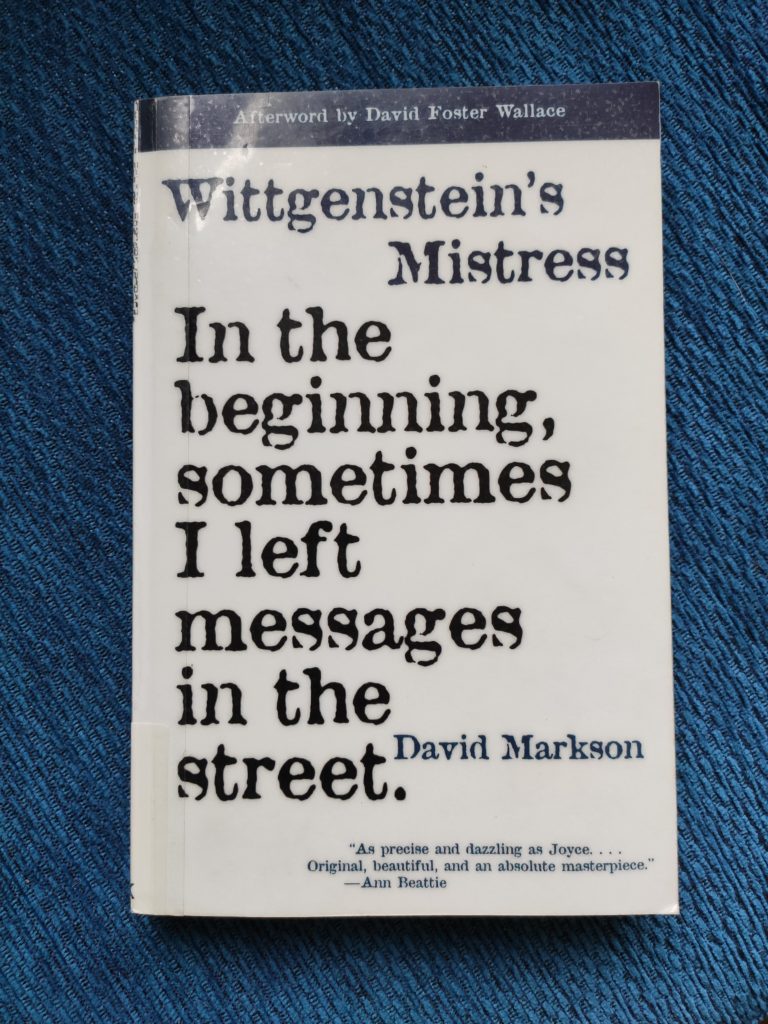
This book is a diary written by the last person on earth. It’s not initially clear what happened to everyone else, but we find out that she has been alone for some years, travelling around in abandoned cars and living in various interesting abandoned buildings (such as museums). It becomes clear that she is becoming a bit unhinged; understandable in her circumstances. To me this book reads like a study in memory, regret and self-deception, though that makes it sound a bit grim; there is a fair bit of humour in this book. The overall tone is reminiscent of Markson’s This is Not a Novel. Wittgenstein’s Mistress is more conventional, but that wouldn’t be hard: it’s still a strange, amusing and unsettling read.
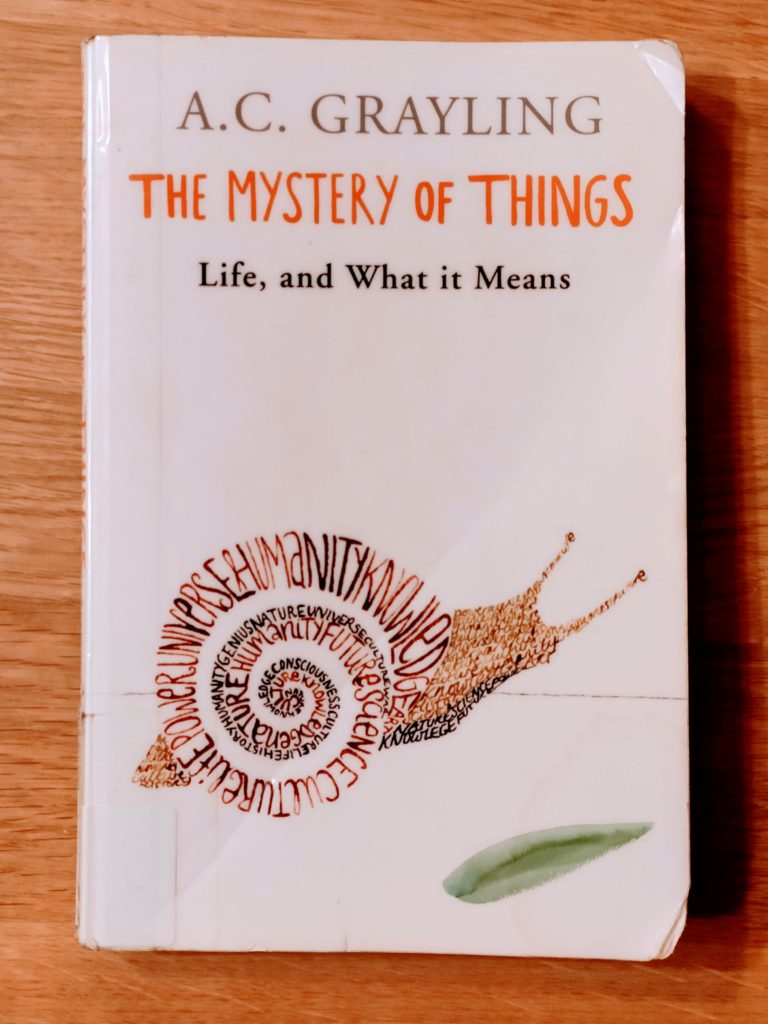
Grayling always has something interesting to say, and a carefully-considered and nicely-worded way of saying it. This book is divided into three parts, devoted to Art, History and Science. Each part contains a dozen or so essays on related topics.
Continue reading